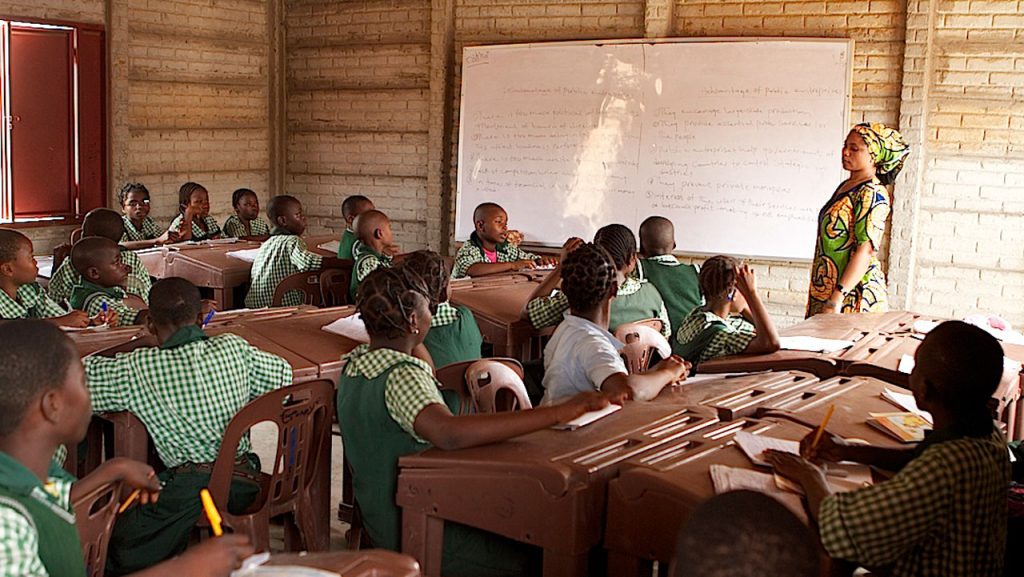The Kaduna State government has announced plans to consolidate a total of 359 schools due to persistent bandit activities, which have led to abductions and kidnappings in the state.
Governor Uba Sani, represented by his Chief of Staff, Sani Kila, shared these plans during a stakeholders forum and the Schools’ Protection Squad training on Wednesday.
He explained that schools in vulnerable communities would be merged with those in safer locations as a strategy to protect schools and students from bandit attacks.
Kila highlighted that the formation of the school protection squad, part of the Federal Government’s Safe School Initiative, is intended to secure schools, students, and teachers from attacks by bandits and terrorists.
He remarked that Kaduna is among the states continuously combating banditry, terrorism, kidnapping, and other criminal activities.
Kila expressed concern over how the actions of these non-state actors have not only disrupted socio-economic activities in impacted communities but are also jeopardizing the state’s educational revitalization efforts.
“Kaduna state’s educational system is facing a crisis of declining enrolment, with over 200,000 fewer primary school pupils recorded in the 2022/2023 academic session compared to the previous year.
This dramatic drop (from 2,111,969 in 2021/2022 to 1,734,704 in 2022/2023) is largely attributed,” he said.
“In several local government areas (lgas) particularly chikun, birnin gwari, Kajuru, Giwa, and Igabi insecurity has forced school consolidation, further pushing up the number of out-of-school children.
Incidents like the kidnapping of 135 students from the Lea Primary and Junior Secondary School, Kuriga, Chikun local government, tragically illustrate the devastating impact of insecurity on education access and safety.”
For more than a decade, Kaduna like other states in the North West zone, has faced severe security challenges orchestrated by bandits and terrorists, including attacks on educational institutions.
However, Kila said he believed that no nation could achieve its human capital development goals, and continue its path towards sustainable development when its schools are threatened by insecurity.
“The theme of this capacity building programme ‘Strengthening Security Resilience and Integration of host Communities in the Protection of Education’ is apt.
No nation can achieve its human capital development goals, and in fact, make giant developmental strides if it fails to guarantee the safety and security of schools.
“For you to effectively guarantee the safety and security of schools, you must build the capacity of security forces and communities to anticipate, prepare for, reduce the impact of, cope with, and recover from the effects of shocks and stresses.
It follows therefore that security forces must integrate host communities in their security plans and execute effective psychological operations to win the hearts and minds of the people”.
“I commend the Federal Government for launching the N144.8 billion safe schools financing plan in 2022. The plan was developed through rigorous consultative strategic engagements with all relevant stakeholders in the education and security sectors, at national and sub-national levels.
“It is gratifying to note that in furtherance of this plan, the Inspector General of Police, IGP Olukayode Egbetokun has established the Schools Protection Squad (SPS), a proactive initiative aimed at enhancing security and safety in educational institutions across Nigeria.’
“To ensure that the education of our children in conflicts-prone and terrorist-infested areas is not interrupted, we have commenced the merging of 359 schools with those in safe locations. “
“We are also implementing our safe school program to strengthen the security in our primary and secondary schools”.
“We are collaborating with the Nigeria police force which is currently training a school’s protection squad (SPS)”.
“We have made adequate budgetary provisions for effective implementation of our safe school programme.”
He listed measures being implemented as, fencing of schools, the establishment of security and safety response committees with membership drawn from schools and communities, deployment of Kaduna Vigilance Service (KADVS) to schools, provision of emergency lines to schools, security awareness training for school managers, teaching and non-teaching staff and school-based management committee members, construction of muster points in schools, training on identification of early warning signs, and construction of watch tower in schools.“I hope that this capacity building programme will not only equip the participants with the skills and techniques of coping in challenging security situations but will develop a framework for psychological operations and strategic communication to win the hearts and minds of citizens in conflict-challenged communities,” he said.“Security forces must hold regular meetings with elders, religious leaders, representatives of youth and women groups”.

